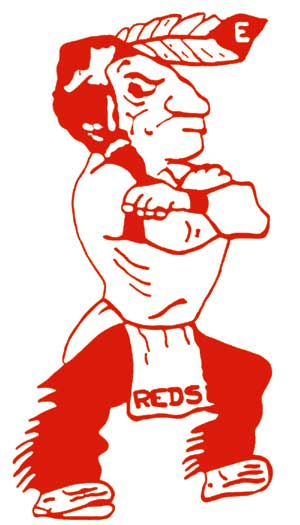
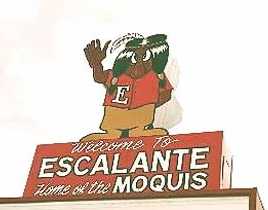 Another Stereotype of the Month entry:
Another Stereotype of the Month entry:

 Another Stereotype of the Month entry:
Another Stereotype of the Month entry:
Stop tomahawk-chopping NCAA mascots
By Jay Ambrose
Published: Tuesday, August 9, 2005 10:24 AM EDT
When Teddy Roosevelt helped assemble a bunch of cowboys and others to fight in the Spanish American War, they did not get called the Cowardly Cusses or the Horseback Hobos. The name that stuck was the Rough Riders, and we all know why, don't we?
The name suggested toughness and heroism, the qualities that Roosevelt, other military men and the public hoped the soldiers would exemplify on the battlefield.
Sports teams operate the same way. When organizers pick a nickname, a logo and a mascot, they are not aiming to insult the team. They are usually seeking out a symbolic way of suggesting the virtues they hope will be manifested in the games the team plays.
That intention is one reason it is so incredibly silly that the NCAA is going to war against the use -- by some university teams -- of American Indian nicknames, logos and mascots that it considers racially "hostile" and "abusive."
You are soon going to have to get those nicknames off uniforms in post season tournaments, the NCAA says. You won't be allowed to show the logos. Let one of those mascots prance across a basketball court on such an occasion, and there will be serious penalties to contemplate.
The ban doesn't apply to the regular season, it's reported, because the NCAA doesn't think it has the authority to enforce it and it doesn't apply to football games because there is no post season NCAA football tournament. But a committee that recommended the changes would like to see all American Indian nicknames disappear in all NCAA competition. According to an Associated Press story, the committee says schools should imitate Wisconsin and Iowa by shunning games with teams that call themselves Seminoles, Chippewas, Braves, Indians, Fighting Sioux and the like.
What's that? A sarcastic chuckle? One is due because Wisconsin and Iowa are among those states -- almost half the total -- that are named after Indian words and sometimes tribes. If you are going to say the University of Utah cannot have "Utes" on uniforms in future NCAA tournaments, as the NCAA does, why allow "Utah?"
Both words refer just as surely to the same Indian tribe. And why would the simple use of a tribe's name be regarded as hostile or abusive, anyway?
I will grant there might be a couple of team names that are objectionable, such as the Southeastern Oklahoma State Savages, and that some mascots may overdo it. Yet most of these names, logos and mascots are no more disrespectful than references to America as the land of the free and the home of the brave. What we have are simply romantic, adulatory generalizations, which are not so horrible. Even when the mascots seem warlike, the evocation isn't of bloodshed, but of daring, defiance and valiance. Holding these images in mind is not a way of saying a whole people is thus summed up. It is a way of referring to a strong, positive impression out of our history.
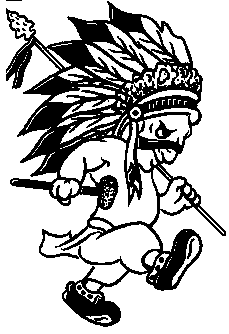
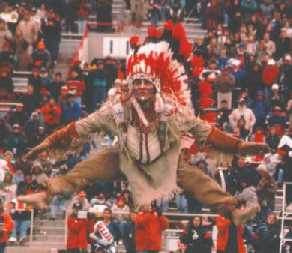
Florida State, which wants to keep its Seminole name in all games, is said to be considering a suit against the NCAA. I don't blame the university, but can't help thinking that here we Americans go again, nicking ourselves to enfeeblement over petty matters. It too often seems that somewhere, in the vast social change of recent decades, we Americans have misplaced our common sense, thereby opening the doors to would-be morality dictators who consistently make false analogies to real issues.
There are indeed real issues facing Indians in America today and there are real solutions. Cracking down on nicknames is not one of them.
Examiner columnist Jay Ambrose is a former Washington opinion writer and editor of two dailies.
Rob's reply
>> What's that? A sarcastic chuckle? One is due because Wisconsin and Iowa are among those states -- almost half the total -- that are named after Indian words and sometimes tribes. If you are going to say the University of Utah cannot have "Utes" on uniforms in future NCAA tournaments, as the NCAA does, why allow "Utah?" <<
See the Canard of States' Names for a response.
>> Both words refer just as surely to the same Indian tribe. And why would the simple use of a tribe's name be regarded as hostile or abusive, anyway? <<
See the Canard of Names Can't Hurt You for a response.
>> What we have are simply romantic, adulatory generalizations <<
In other words, stereotypes.
>> Even when the mascots seem warlike, the evocation isn't of bloodshed, but of daring, defiance and valiance. <<
How does Ambrose know what was in the minds of thousands of people who named thousands of school mascots over the last century or two? Why would mascots evoke something different from the other stereotypical images of Indians in our culture?
For Ambrose's information, the public traditionally considers Indians to be fierce, savage, and warlike. If the public also considers them to be daring, defiant, and valiant, that's because these are related traits.
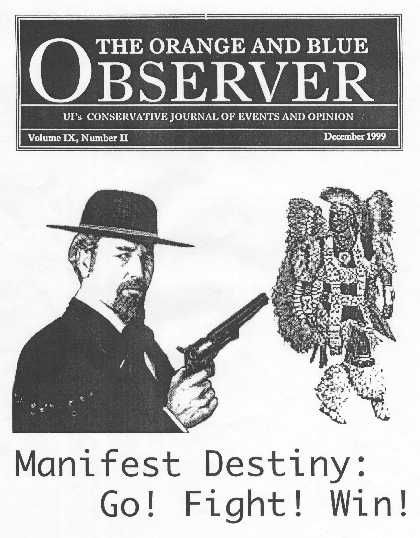
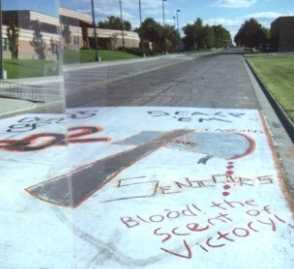
We can demonstrate these traits aren't uppermost in people's minds by looking at the names not chosen for school mascots. There are no daring Trapeze Artists, defiant Juvenile Delinquents, or valiant Sikh Soldiers. That's because these names don't evoke the core attributes of fierce, savage, and warlike.
If you need any more persuading, just take a look at the stereotypical mascots on this page. Let me know which ones are supposed to be daring, defiant, or valiant, because it isn't obvious to me.
>> Holding these images in mind is not a way of saying a whole people is thus summed up. <<
It isn't? Then why do most people think of "fighting" chiefs and braves who look like school mascots when they think of Indians?
>> It is a way of referring to a strong, positive impression out of our history. <<
If you consider being fierce, savage, and warlike a positive impression, maybe. But if people have such a positive impression of Indians, why don't they ask their politicians to uphold Indian treaties? Why do they get so upset when Indians open casinos nearby? Why do they think of Indians as one-dimensional stereotypes instead of complex human beings?
>> I don't blame the university, but can't help thinking that here we Americans go again, nicking ourselves to enfeeblement over petty matters. <<
"Petty"? See More Responses to Critics for a response.
>> It too often seems that somewhere, in the vast social change of recent decades, we Americans have misplaced our common sense, thereby opening the doors to would-be morality dictators who consistently make false analogies to real issues. <<
"Morality dictators"? See the Canard of the NCAA Knows Best for a response.
This sounds like something a kike, wop, or nigger would say. Oh, wait...is using ethnic slurs a real issue, one we should be concerned about? If so, then how is it okay to have football teams named the Redskins?
>> There are indeed real issues facing Indians in America today and there are real solutions. Cracking down on nicknames is not one of them. <<
Then I wonder why so many tribes and Native organizations have passed resolutions condemning them. Rather than tell these Indians what's important to them, why don't you listen to them?
Related links
Why FSU's Seminoles aren't okay
Team names and mascots
|
. . . |

|
All material © copyright its original owners, except where noted.
Original text and pictures © copyright 2007 by Robert Schmidt.
Copyrighted material is posted under the Fair Use provision of the Copyright Act,
which allows copying for nonprofit educational uses including criticism and commentary.
Comments sent to the publisher become the property of Blue Corn Comics
and may be used in other postings without permission.